Iran says it has not received any messages from Trump
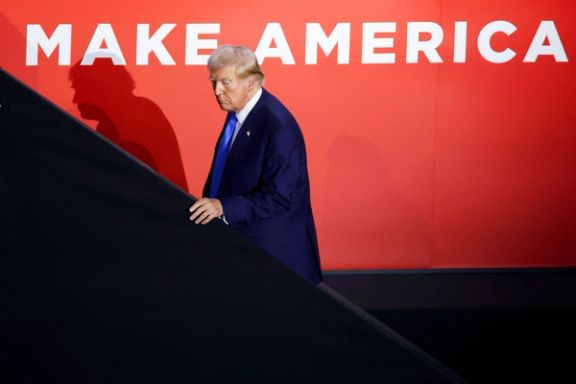
Iran's president says the Islamic Republic has not received any messages from US President Donald Trump yet.

Iran's president says the Islamic Republic has not received any messages from US President Donald Trump yet.
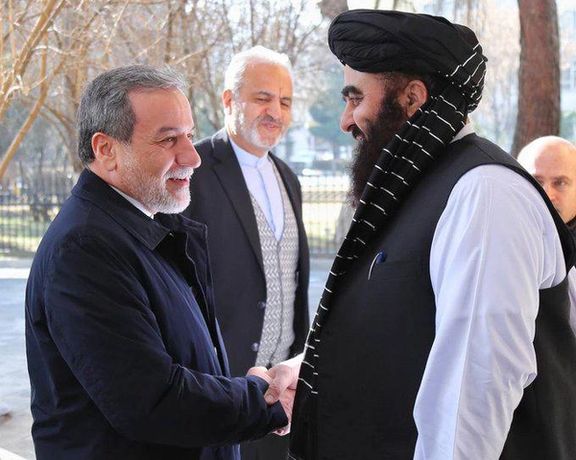
Iranian media and political commentators have criticized Foreign Minister Abbas Araghchi’s official visit to Kabul on Sunday, arguing that Tehran has not yet formally recognized the Taliban government.
In a Monday article, reformist publication Etemad Online questioned the rationale behind the visit, arguing that while neighboring countries are a priority in foreign policy, visiting a nation whose government Tehran has not recognized raises significant concerns. The article noted that the trip took place “despite warnings from experts.”
The caretaker of Iran's embassy in Kabul, Alireza Bigdeli, declined to confirm whether Araghchi’s visit signified recognition of the Taliban regime. “Recognition [of a government’s legitimacy] is a process grounded in international law with its own specific criteria,” he said, asserting the distinction between diplomatic engagement and formal recognition.
On Saturday, the conservative newspaper Jomhouri Eslami had urged Araghchi to cancel the trip, citing unresolved issues such as disputes over water rights between Tehran and Kabul, border violations by the Taliban, the influx of illegal immigrants into Iran, and Taliban support for terrorist groups.
The newspaper warned that attempting to address these issues during the visit was “only an illusion” and predicted the visit would yield no tangible benefits.
In a harshly worded commentary published Monday, Jomhouri Eslami criticized the visit, calling the Taliban an “insurgent, violent, and backward group.” The article also questioned whether the Taliban merited attention from the Iranian Foreign Minister and accused proponents of the visit of either misunderstanding the region or prioritizing personal agendas over Iran’s national interests.
Ali Bigdeli, a senior foreign policy expert, also expressed skepticism in an interview with the Fararu news website. He argued that Araghchi didn't have to travel to Kabul to address Iran’s water rights regarding the Helmand River or recent tensions with Afghanistan. Bigdeli suggested that Iran could have invited a high-ranking Afghan delegation to Tehran instead.
Notably, the leader of the Taliban, Mullah Hibatullah Akhundzada, did not meet with the Iranian foreign minister during his one-day visit.
Araghchi stated that Afghan officials had pledged to honor their obligations regarding Iran’s share of the Helmand River water, framing it as both “human and religious duties.”
While some media outlets were critical, others offered a more positive assessment of the visit.
Khabar Online, a platform affiliated with former Parliament Speaker Ali Larijani, highlighted potential economic and political benefits. The outlet also discussed the opportunity to resolve longstanding water disputes, which, if left unaddressed, could trigger mass migration from Iran’s southeastern province of Sistan and Baluchestan.
“Experts in international relations believe that the Ministry of Foreign Affairs, recognizing Afghanistan’s geopolitical significance, is prioritizing trade and security to align Afghan authorities’ political behavior with Iran’s national interests,” the outlet's report noted.
During his visit, Araghchi expressed Tehran's eagerness to boost imports from Afghanistan in order to establish a more balanced trade relationship. Currently, Afghanistan imports oil, gas, food products, construction materials, agricultural machinery, and petrochemical goods from Iran.
According to Afghanistan’s Ministry of Industries and Trade, bilateral trade grew by 84% in 2024, reaching $3.197 billion.
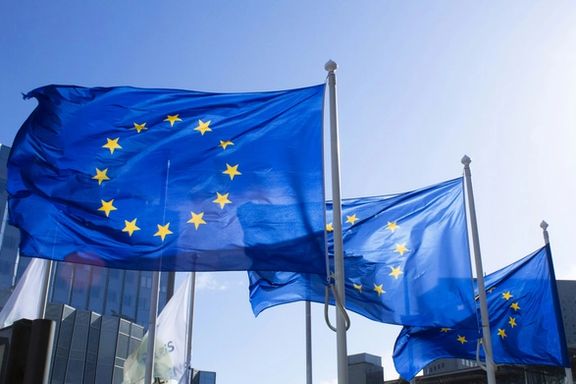
The European Union’s High Representative for Foreign Affairs said Iran poses an ongoing threat to international peace as the bloc called for a halt to executions and urged Tehran to align with international human rights standards.
Kaja Kallas said the council in its meeting on Monday "discussed Iran’s continuing threats to international peace". European member states, she added, emphasized that Tehran's "practice of detaining foreign nationals for political leverage must end."
"We also will have a deeper discussion on Iran and European Union-Iran policy, in the very near future," she added.
The Council of the European Union in a meeting on Monday called on Iran to halt executions and align its policies with international human rights standards, emphasizing the rights of women, girls, and minority groups.
“The EU will also urge Iran to release all arbitrarily detained individuals, including foreign and dual nationals, to bring detention conditions into line with international standards and to provide due process to all detainees,” the Council said in a statement.
The Council also demanded Tehran's full cooperation with UN mechanisms, including the Independent Fact-Finding Mission and the UN Special Rapporteur on Iran.
Earlier on Monday, French Foreign Minister Jean-Noel Barrot said that his country would propose the European Union issue sanctions against Iranian officials responsible for the detention of French citizens in Iran.
At least three French nationals, Olivier Grondeau, Cecile Kohler, and Jacques Paris, were detained in 2022 and remain in custody in Iran.
Last week, the European Parliament adopted a motion for a resolution condemning Iran’s detention of European Union citizens, labelling the practice as “hostage diplomacy.”
The resolution called for the immediate and safe release of all EU citizens held in the country, including the three French nationals—Grondeau, Kohler, and Paris—as well as Swedish-Iranian death-row prisoner Ahmadreza Djalali.
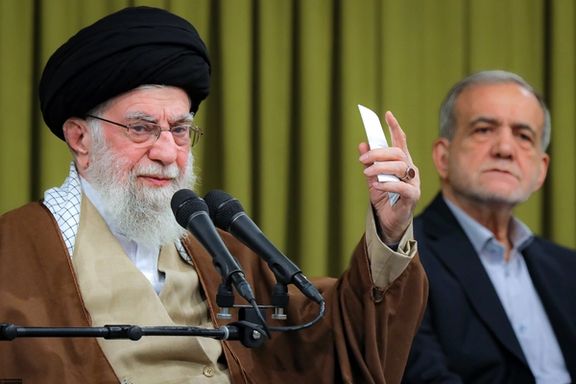
Iran's Supreme Leader Ali Khamenei urged Iranian officialdom to know their enemy when negotiating and to make deals accordingly, in cryptic remarks some commentators viewed as a tacit endorsement of talks with the United States.
"Behind the smiles of diplomacy, there are always hidden and malicious enmities and resentments. We must open our eyes and be careful with whom we are dealing, trading, and talking," Khamenei said at a gathering of top military and political figures.
Sitting beside President Masoud Pezeshkian, who has publicly expressed openness to US talks, Khamenei continued: “When a person knows his opponent, he may make a deal, but he knows what to do. We must know and understand."
Although Khamenei did not explicitly address relations with the US, his call for vigilance was construed by many, particularly Reformist media in Tehran, as a tacit green light to talks with Washington.
These outlets emphasized what they called a noticeable shift in his tone, which appeared more open to the possibility of a potential deal, signaling a subtle but significant softening in his rhetoric.
Khamenei is known for speaking in circuitous and obscure terms when addressing the competing power factions within the governing system he leads.
He rarely takes clear political or diplomatic stances, often opting to remain behind a shield of deniability. Over a decade ago, he also cautioned Iran's negotiators during nuclear talks, positioning himself more as a bystander than a decision-maker.
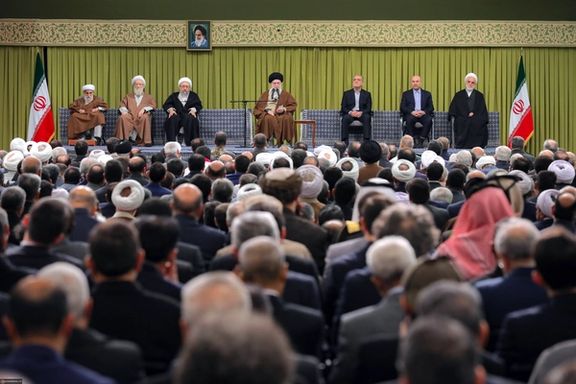
The ultimate decision maker of the Islamic Republic for most of its nearly 50-year history, Khamenei's rule is backed by a feared domestic security apparatus has fended off an assassination attempt, popular uprisings, armed insurgencies and terrorist attacks.
“The Supreme Leader's statements today clearly demonstrate that diplomacy must be conducted with a thorough understanding of the other side and their animosities," Mohammad-Hossein Ranjbaran, an advisor to the foreign minister, wrote on X.
"This is a clear message for everyone to move forward on this difficult path with solidarity and consensus.”
Reformist commentator Mohammad-Ali Ahangaran said: “The Supreme Leader, if he intended to reject the possibility of negotiations, should have done so in today’s speech."
“However, the wise Leader of the Revolution, through today’s warnings and clarifications, showed that he has a different plan — a plan that has, for some time, deprived a group of ultra-revolutionaries... of peace and rest,” he added.
'Financial elites'
Khamenei also pointed to what he called the duplicity of US diplomacy, citing alleged examples of American support for violence against civilians.
"When US Congress members applaud the butcher responsible for the massacre of thousands of children, or when they award a medal to the captain of the American warship that shot down an Iranian passenger plane with 300 civilians aboard, these acts reveal their malicious and hidden enmity behind their diplomatic smiles," Khamenei added.
He was referring to the war in Gaza and Iran Air Flight 655, a scheduled passenger flight from Tehran to Dubai via Bandar Abbas that was shot down in 1988 by two surface-to-air missiles fired by USS Vincennes, a United States Navy warship.
Khamenei also accused the United States of being beholden to powerful financial elites, echoing recent domestic criticisms of the new administration of Donald Trump as being too close to prominent billionaires.
"The US government stands as the pinnacle of arrogant and colonial powers, heavily influenced by the world's top financial elites,” he said.
Khamenei framed modern imperialism as a continuation of past colonialism.
"The history of colonialism shows three stages: the plunder of natural resources, the destruction of authentic cultures, and the seizure of national and religious identities. Today, the powerful and malevolent global systems are imposing all three stages of colonialism on nations," he said.
"Every day, major financial cartels devise new ways to reshape the identity and interests of nations and expand their colonial dominance," Khamenei noted.
Praise for Hezbollah, Gaza
Khamenei lauded what Iran calls resistance movements in the Middle East, saying that Hezbollah in Lebanon continues to stand strong despite the loss of prominent leaders, including Hassan Nasrallah who was killed by Israel in September.
"This (Nasrallah’s death) is no joke. How many individuals of Seyyed Hassan Nasrallah’s stature exist in the world? After his loss, while friends and foes assumed Hezbollah’s end was near, the organization proved otherwise. In some cases, it stood stronger and more motivated against the Zionist regime," he said.
Iran is widely perceived to have had its strategic stature in the region deeply weakened by Israeli military blows in the 15-month conflict that has gripped the Mideast since Iran-backed Hamas attacked Israel on Oct. 7, 2023.
"Gaza, a small and limited region, has brought the heavily armed Zionist regime, fully backed by the US, to its knees. Gaza defeating the Zionist regime is no small feat.”
The meeting on Tuesday also featured remarks from President Pezeshkian, who stressed the importance of unity and justice in the face of global challenges, drawing on allegories from the life of Prophet Muhammad, whose revelation anniversary was the event's centerpiece.
"The prophets’ mission was to establish justice and eliminate divisions and conflicts," Pezeshkian said. "The Prophet Muhammad’s first act after migrating to Medina was to create brotherhood among feuding tribes. Today, more than ever, Iran, Islamic societies and all nations need to embrace this perspective."

A shadowy new ultraconservative party calling itself the Society of Revolutionary Clerics is staking a place in Iranian politics well to the right of Saeed Jalili, the main standard bearer of opposition to the current relatively moderate government.
The party aims to participate in the next Assembly of Experts election, a clerical body responsible for selecting a successor to 85-year-old Supreme Leader Ali Khamenei, media commentators have suggested.
With established senior ayatollahs at the Qom Seminary telling media outlets that they are unfamiliar with its members, the party appears to be composed of younger clerics born in the 1970s and 1980s.
Ultra-conservatives already hold the lion’s share of power in the Islamic Republic, with many Reformist politicians and commentators blaming them for the deadlock with the United States and the nation’s ongoing economic crisis.
Several reports in pro-reform and pro-government media have already targeted Saeed Jalili, last year’s runner-up in the presidential race and a key figure linked to the radical Paydari Party, accusing him of hindering the country's development and undermining efforts to lift US and international sanctions.
A report by the moderate conservative Khabar Online website accused Jalili of sabotaging four potential foreign policy initiatives that could have resolved Tehran's diplomatic deadlock and opened the path to lifting sanctions.
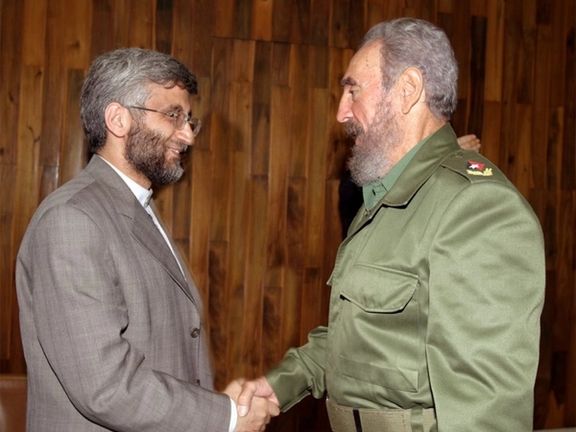
Those cases included torpedoing a profitable two-decades-old oil contract with foreign entities, opposing an original international deal over Iran's nuclear program, preventing talks to revive it and blocking bills which could ease Iran's accession to the Financial Action Task force (FATF).
According to the website, Jalili, who operates a shadow government, has established his own network alongside the Paydari Party to advance what it called an "obstruction campaign."
The report, echoed by other Iranian media outlets, also accused Jalili’s allies in Parliament of blocking initiatives aimed at improving Iran’s relations with the West.
Over the years, under Presidents Hassan Rouhani, Ebrahim Raisi, and more recently President Masoud Pezeshkian, moderate politicians including former Oil Minister Bijan Zanganeh have unsuccessfully attempted to engage Jalili in a debate over what they see as his unconstructive role.
Particular scrutiny surrounds his tenure as Secretary of Iran's Supreme National Security Council under President Mahmoud Ahmadinejad, when relations with the West cratered.
The new ultraconservative clerical party taking shape is led by previously low-profile figures who are even more hardline than Jalili could augur even more intransigent resistance to an opening with Washington.
Its luminaries include Seyyed Mohammad Aghamiri, a member of the Tehran City Council and a close associate of Tehran’s hardline Mayor Alireza Zakani, along with Morteza Esteghamat, a member of the Mashhad City Council closely aligned with the city’s firebrand Friday Prayers Imam Ahmad Alamolhoda.
The Islamic Republic currently permits two main clerical political parties.
The left-wing "Militant Clerics Association" includes figures such as Reformist former President Mohammad Khatami, Expediency Council member Majid Ansari and Mohammad Ali Abtahi.
The right-wing "Militant Clerics Society" includes Ahmad Alamolhoda and other hardliners like Seyyed Reza Akrami and Seyyed Reza Taqavi.
Over the past 46 years, the right-wing party has maintained dominance over Iran’s unelected institutions. Leading members of both parties have played pivotal roles in shaping nearly every significant event in Iran over the past four decades.
While most members of the two established clerical parties are seminarians, Qom Seminary teachers have told Tehran-based media that they are unfamiliar with any of the members of the emerging party.
Five senior ayatollahs at the seminary including Hosseini Bushehri said they have no knowledge of the 19 male and female clerics who lead the new party, according to Iranian media outlets, deepening the mystery about its personnel and goals.
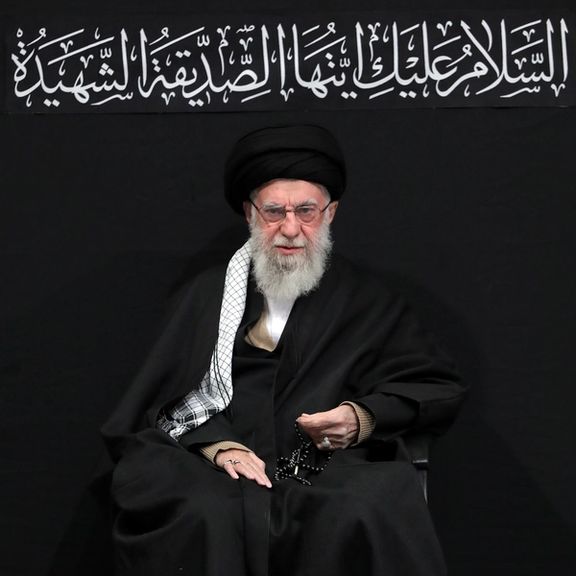
A pivotal aspect in choosing a successor to Ali Khamenei, the ultimate authority in Iran and Supreme Leader of the Islamic Republic, will involve assessing the candidates' religious knowledge and credentials.
Khamenei’s successor as the state's Supreme Jurist (Vali-ye Faqih) must be a "mujtahid," someone qualified to issue independent religious rulings (Ijtihad).
Determining the religious knowledge and credentials of potential candidates could prove challenging for the Assembly of Experts, especially given the decentralized nature of Shia clerical hierarchies and seminaries.
This could result in disputes among the Assembly's 88 members, all recognized as "mujtahid," except for its only lay member, Mohsen Esmaili, who represents Tehran.
Q: How does one gain recognition as a "mujtahid"?
In Shia tradition, a cleric's standing is largely determined by peer recognition rather than solely by completing formal coursework.
Gaining recognition as a "mujtahid" goes beyond merely attending advanced lectures from esteemed scholars. It also requires endorsement or certification from one or more high-ranking clerics, referred to as "sources of emulation" (marja-e taqlid), or other highly respected "mujtahids."
Teaching the highest level of instruction in Shia seminaries, known as "Kharij," is a privilege reserved exclusively for "mujtahids." Although all ayatollahs are, by definition, "mujtahids," attaining the status of "mujtahid" does not automatically confer the title of ayatollah.
Q: How does the Guardian Council challenge the established seminary tradition?
In 2015, the hardline Guardian Council, responsible for election oversight, ruled that mere recognition as a "mujtahid" was insufficient to qualify for candidacy in the Assembly of Experts elections.
The Council mandated that several candidates, including Hassan Khomeini, the grandson of the Islamic Republic's founder Ayatollah Ruhollah Khomeini, take exams to prove their qualifications.
This decision was broadly interpreted by many analysts as an attempt to marginalize political rivals and shape the selection process for Khamenei's successor.
Q: How do religious qualifications stand in the face of political realities?
Khamenei's appointment in 1989 demonstrated that elements beyond mere religious qualifications can significantly influence the choice of a Supreme Leader.
After Khomeini's death on June 3 of that year, the Assembly of Experts met swiftly, electing Khamenei as his successor by June 4.
At the time of his appointment, Khamenei was not recognized as a senior religious "source of emulation" — the traditional prerequisite for the position of Supreme Leader.
This requirement was subsequently eliminated from the Constitution via an amendment three months later.
However, it wasn't until December 1994—following the death of Ayatollah Mohsen Araki, Qom's most senior source of emulation—that some Qom clerics formally recognized Khamenei as a source of emulation.
Q: Who are some of Khamenei’s potential successors?
A specialized three-member committee within the Assembly of Experts is charged with identifying potential successors to the Supreme Leader.
This committee, believed to be operating with Khamenei's knowledge, has reportedly chosen three candidates. Their identities remain confidential, undisclosed to both the public and other Assembly members.
The scholarly profiles of these candidates likely played an important role in their selection for this secretive list.
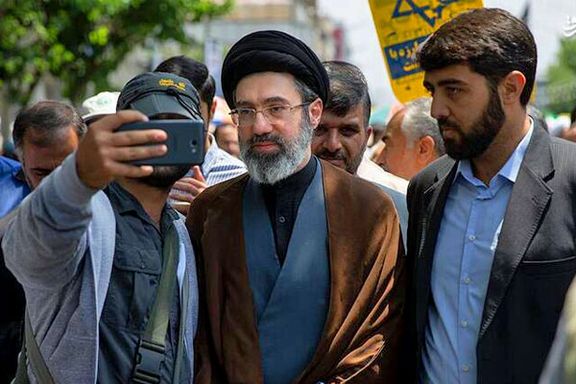
Mojtaba Khamenei
Mojtaba Khamenei, the 55-year-old son of the Supreme Leader, is commonly regarded as a prime candidate or heir apparent, yet he might face significant challenges in establishing and gaining acceptance for his "ijtihad" authority.
Although he has studied under several notable sources of emulation in Qom, there is no public record of any of these figures having officially recognized him as a "mujtahid."
In August 2022, Rasa, the news outlet associated with Qom's seminary, notably referred to Mojtaba Khamenei as "Ayatollah" for the first time, elevating him from the previously used title of Hojjat ol-eslam. Rasa further claimed that he had been teaching "kharij" lessons for thirteen years. However, no recordings or footage of these "kharij" lectures have come to light.
In a video message released in September, Mojtaba Khamenei declared that he had decided to suspend his teaching, saying that this decision was made without his father's knowledge. He provided no additional explanation for his choice.
In September 2022, widespread protests swept Iran, with chants not only attacking the very foundation of the Islamic Republic and calling for its downfall but also specifically targeting Mojtaba Khamenei with slogans like, "Mojtaba, We'll See You Die Before Becoming a Leader."
Some Iranian politicians and media assert that Khamenei is against his son's appointment as future leader.
This month, the Tehran Times, a news outlet linked to the state-run Islamic Propaganda Organization, published an article titled "Why is Western Media Constantly Lying About Mojtaba Khamenei?" where it was claimed that, based on their sources, Khamenei "remains resolute in his opposition to any of his sons’ succession, and the Assembly of Experts is respecting that."
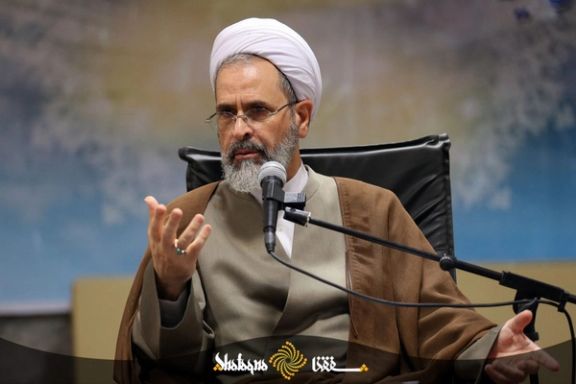
Alireza Arafi
Ayatollah Alireza Arafi, at 65, is another prominent figure and one of Khamenei's trusted associates. He is a recognized "mujtahid" and has long held the title of ayatollah.
Arafi currently serves as the second deputy chairman of the Assembly of Experts and holds several other high-profile positions, including head of the organization overseeing the state's Shia seminaries, one of the Friday prayer leaders of Qom (appointed by Khamenei), and a member of the Guardian Council (also appointed by Khamenei).
His status as a "mujtahid" is unlikely to be contested by assembly members.
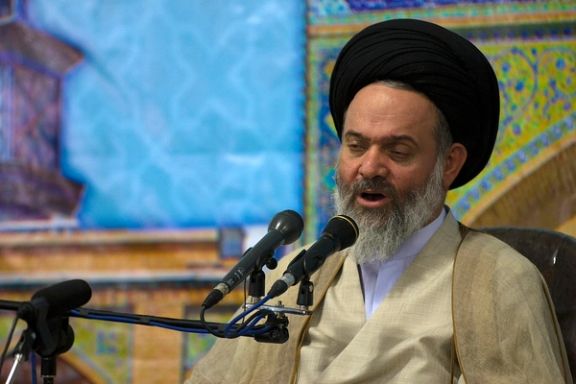
Hashem Hosseini-Bushehri
Ayatollah Hashem Hosseini-Bushehri, at 67, is a recognized "mujtahid" whose credentials are unlikely to be questioned by the Assembly's members.
Bushehri serves as the first deputy chairman of the Assembly of Experts. Similar to Arafi, he holds multiple high-ranking roles in Qom seminaries and is one of the Friday prayer leaders of Qom, appointed by Khamenei.
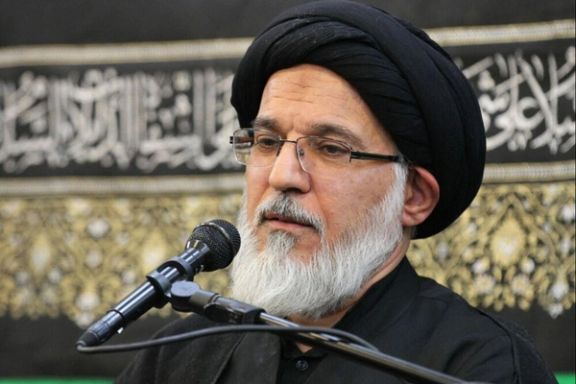
Mohammad-Mehdi Mirbagheri
Ayatollah Mohammad-Mehdi Mirbagheri, aged 63, is an established "mujtahid" who has been teaching "kharij" lessons for over two decades. He is known by the title of ayatollah.
Mirbagheri remains a somehwat shadowy figure, having never held a government position.
Within Iran's political and religious circles, he is widely regarded as the ideological successor to the late Ayatollah Mohammad-Taghi Mesbah-Yazdi, who was the spiritual leader of Iran's ultraconservatives. He has been part of the Assembly of Experts since 2016.
Mirbagheri enjoys the support and loyalty the ultra-hardliner Paydari (Steadfastness) Party and the newly formed Jebhe-ye Sobh-e Iran (MASAF). He backed Saeed Jalili in the 2013 presidential elections and Ebrahim Raisi in 2017 against the moderate candidate Hassan Rouhani.
Additionally, he supported Mahmoud Ahmadinejad's presidential campaigns in 2005 and 2009, but distanced himself when Ahmadinejad lost Khamenei's support in 2011.
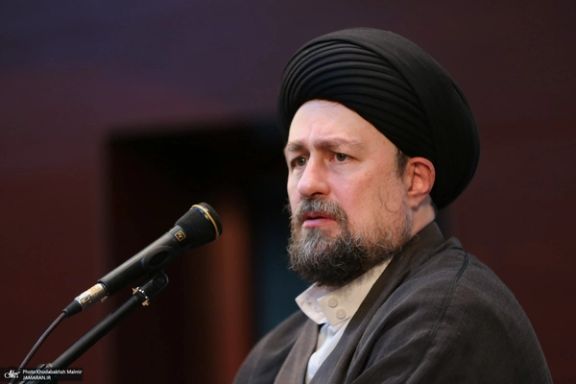
Hassan Khomeini
Many view Hassan Khomeini, the grandson of the Islamic Republic's founder, as the least probable candidate for leadership.
Nevertheless, he cannot be entirely dismissed as a potential candidate, given his high recognition as a "mujtahid" by several esteemed sources of emulation, including Ayatollah Ebrahim Amini and Ayatollah Abdollah Javadi-Amoli.
Hassan Khomeini holds the role of custodian for his grandfather's mausoleum. He started teaching "kharij" lessons in 2008, and unlike the lectures of Mojtaba Khamenei, the audio files of his teachings are available on his personal website.
In 2015, the Guardian Council disqualified him from participating in the Assembly of Experts election, asserting that they could not verify his "ijtihad" capabilities. However, Hassan Khomeini countered that the Council had never extended an invitation for an interview to assess his qualifications as a "mujtahid".
Asked by reporters about receiving a message from Trump, President Masoud Pezeshkian said, "No, we have not received any messages yet."
Foreign Minister Abbas Araghchi also told reporters that there has been no communication with Trump. "No specific message has been sent or received."
Speaking after a cabinet meeting in Tehran, he talked of the erosion of trust after past agreements were broken.
"We had previously reached an agreement, but they broke the agreement, and now the basis is distrust," he said.
Iran engaged in 18 months of indirect negotiations with the Biden administration between 2021 and 2022 to restore the United States’ participation in the JCPOA after Trump unilaterally exited the agreement in 2018, imposing harsh sanctions on Iran. However, the Vienna talks ended without a deal, particularly after Russia’s 2022 invasion of Ukraine. The conflict raised questions about whether Tehran genuinely sought an agreement or aimed to ease sanctions.
Deputy Foreign Minister for Political Affairs, Majid Takht-Ravanchi, said on Monday that Tehran is consulting on President Donald Trump's policies toward Iran and has developed strategies and plans to address them.
Takht-Ravanchi said that Iran will not engage in negotiations on issues beyond its nuclear program, potentially referencing US demands for Tehran to end its involvement in regional affairs.
Domestically, parliamentary committee member Fada-Hossein Maleki said that Iran is not authorized to engage directly with the US, maintaining only mediated channels.
Iran's Supreme Leader, Ali Khamenei, on Tuesday called on Iranian officials to remain vigilant about their adversaries when engaging in negotiations and to approach agreements with caution. His cryptic remarks have been interpreted by some as a subtle endorsement of talks with the United States.
"Behind the smiles of diplomacy, there are always hidden and malicious enmities and resentments. We must open our eyes and be careful with whom we are dealing, trading, and talking," Khamenei said at a gathering of top military and political figures.
Ali Khamenei has served as the supreme authority of the Islamic Republic for the majority of its nearly 46-year history, wielding ultimate decision-making power.